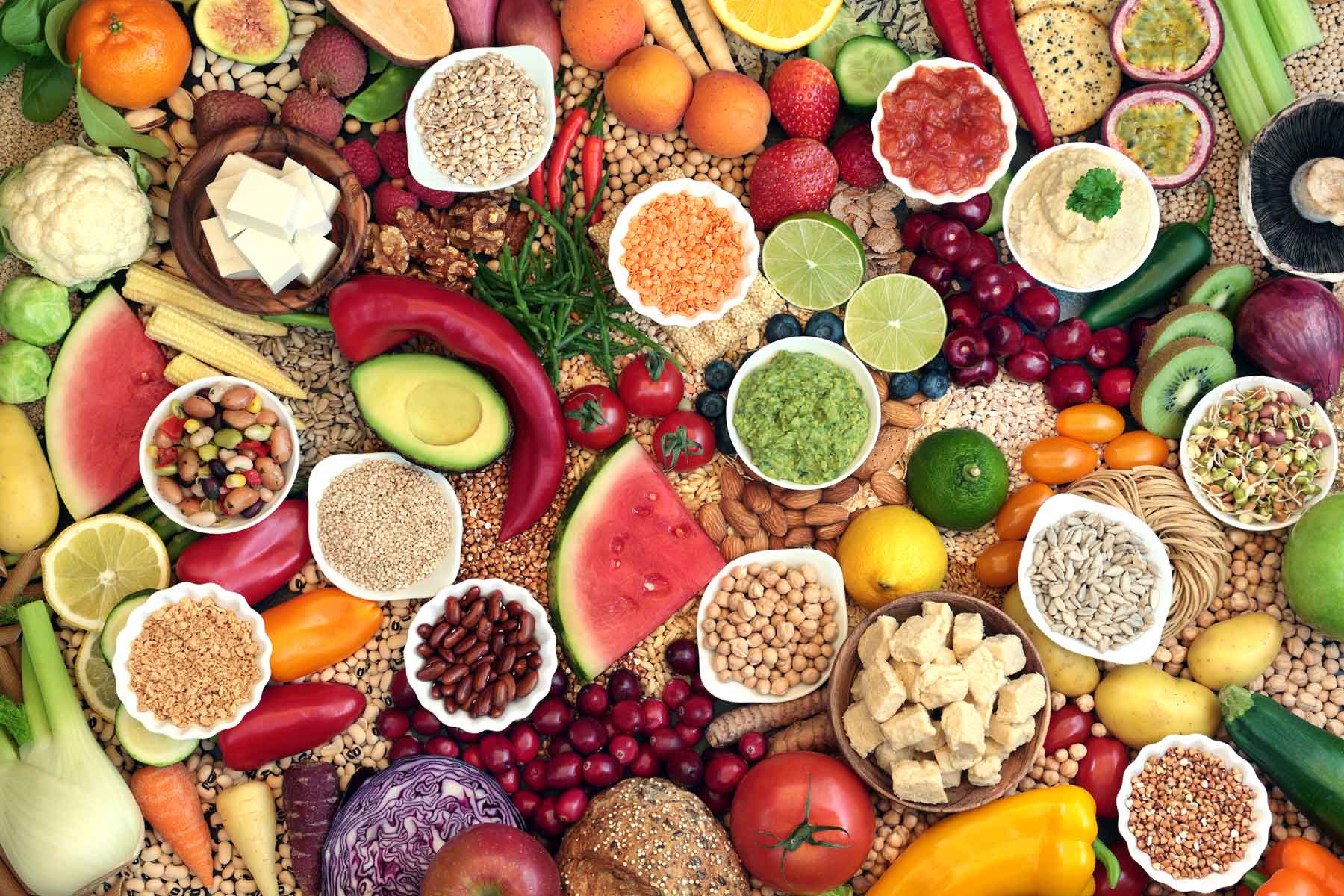
The Key Health Benefits of Mindful Eating
WRITTEN BY TESSIE TRACY
Are you a fast eater? Do you eat while working? How often do you eat while standing up, on the go, or maybe sitting down but in a distressed mood?
Most of us can relate to one or more of these scenarios. Which means we’ve experienced “mindless” eating in some shape or form, possibly even on a daily basis. And as much as we might have heard mindful eating is important, we might not know why. That’s what I’m here for! Continue reading.
As an Eating Psychology Practitioner, I’ll often work with people who are struggling with common complaints like weight gain, low energy, stress eating, etc. And mindful eating is almost ALWAYS one of the first things we begin to work on. Here’s why…
Mindful Eating Helps Our Digestion
The first benefit of eating mindfully is that it can help optimize our digestion. When we are sitting down, present with our food, and taking in the whole moment of nourishing ourselves, it sets up the body to be in an optimal state of digestion. AKA, relaxation response. There’s even an old saying… rest and digest.
When the body is in any level of stress response (mindless or stressed eating can cause this) it’s not physiologically optimized for digestion. In fact, in stress response, also known as fight or flight mode, our body is only ready to save our lives if needed. Blood flows away from the digestive system and into the extremities for quick reaction time and movement. Our assimilation of nutrients is by no means a prioritized function if the body thinks it might need to run or fight at any moment. Adrenaline, cortisol and other stress hormones are elevated.
When we eat in this state, our body will have a difficult time digesting and utilizing calories optimally from that meal. That’s the first piece of rest and digest. Here’s the second...
Before we even take our first bite, our body is naturally taking in the smells, the colors, the ambience, even the presentation of our food. This is called Cephalic Phase Digestive response, and it has been shown to contribute to the efficiency of our digestive system by up to 60%.
This means that our digestive process begins… that’s right… before we’ve even taken our first bite! So use that mechanism to your advantage. Take just a few moments before you eat to absorb the beauty of what’s on your plate. Express gratitude for that meal. Take a few deep breaths to settle into the moment. Your digestive system will thank you.
Also read: 4 Simple Ways To Regain Control Of Your Health
Mindful Eating Helps Regulate Our Appetite
Did you know that it can take up to 20min for the brain in our head, and what’s called the brain in our belly aka our enteric nervous system, to communicate that we are satiated from the meal we’ve eaten.
Now picture that huge meal that you scarfed down in 3 minutes, while on the phone, standing up, and stressing about in a go-go-go state of mind. About 15 minutes later you feel lethargic, ill, and in a “food coma”. But with mindful eating, you’re taking time with each bite (if 20min sounds impossible, start with 10) and giving the body an opportunity to say “hey, I’m good. You can stop now.” In turn we walk away from that meal feeling energized and ready to take on what’s next in our day.
From a hormone perspective, the 2 main players with our appetite are Ghrelin and Leptin. Ghrelin (think “growlin’ like a hungry tummy) signals to us that we’re hungry. Leptin helps the body recognize that it’s full.
When we eat too fast, or in a stressed state, not only will our digestion take a hit, but it can throw our appetite out of whack. When we’ve eaten mindlessly, yes, we might feel like we overdid it about 15 minutes later. Another thing that can happen is that our body doesn’t necessarily recognize that we ate anything, and it’s still hungry.
If we sit down for a piece of chocolate cake, but we feel guilty while eating it, or we eat it really fast for whatever reason… not only did we just put ourselves in a bit of a stress state (which we know now is a problem all on its own) we’ve also potentially overeaten or walk away still feeling hungry.
So this is not a blog suggesting to go eat chocolate cake every day lol. But it is a lesson to remember that if you do choose to have the treat, eat it slow, be present with it, enjoy it, allow yourself to settle into the moment of relaxation. I guarantee you will begin to experience an element of body wisdom, if you will, through which you’ll naturally stop when you’ve had enough, and walk away feeling satisfied, but not sick.
Mindful Eating Helps Us Be More Mindful Overall
Now that you’ve taken on the practice of mindfulness with your meals, it will be that much easier to see it spilling over to all areas of your life. The first place it might trickle over to is your food choices in general, before you even eat.
As we begin to work on really tasting our food, really experience the flavors, textures, zings, spices, and so on, we’ll also develop a more mature ability to say no to foods that are lower quality, processed, and not as healthy for us. Yes, it can take a little effort on the forefront to choose foods that are whole, minimally processed, low sugar, as organic and sustainable as possible… but along with mindful eating will also come a connection with our taste buds that allows us to distinguish if we truly like something or not.
This example is best told through a story. My teacher, the founder of the Institute for the Psychology of Eating, Marc David, tells it in his book The Slow Down Diet. Marc had a client who was an alpha male, tough guy, set in his ways kinda guy. He had hired a dozen nutritionists and coaches to help him with his health. He had also aggressively told each practitioner that he would never give up his big mac and coke that he ate in the car while driving home. Never! Marc David, through a mindful eating approach, took this client by surprise. He didn’t take away the big Mac and coke. Instead, he invited this client to simply not eat it in his car. His only homework was that he had to pull over and sit down somewhere to eat the meal.
Thinking it was ridiculous at first, the client grudgingly obliged. But, after just a few weeks, he came back to Marc and said “Ick, big macs are disgusting! I can’t stand the taste. It’s like rubber. How did I ever like them?!” He was shocked. And, that mindful eating and body awareness was just the experiment he needed to actually realize he didn’t like fast food!
This allowed him to be more mindful about his food choices in general.
When we practice mindfulness in any area, it helps us create that intention with our other decisions as well, like exercise, finances, relationship, social life and more.
As you begin your mindful eating practice, remember that it is just that… a practice, not a perfect. Start with one meal a day. Set a timer for 10-20min and simply be with your food and enjoy it. You just might experience some surprising health benefits.
Sources:
Marc David. The Slow Down Diet
Dr. Ligi Thomas. News Medical Article on Ghrelin and Leptin.











